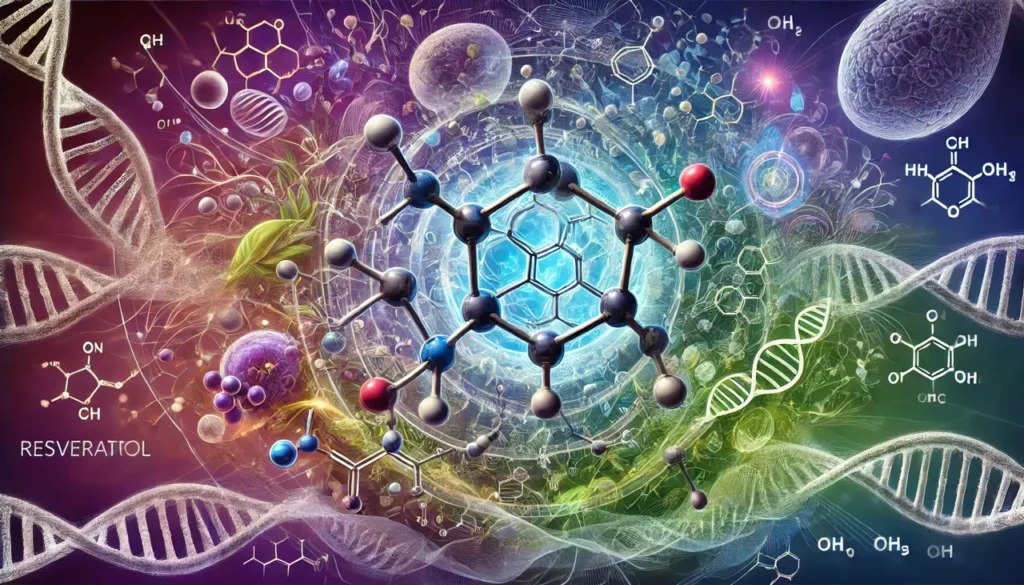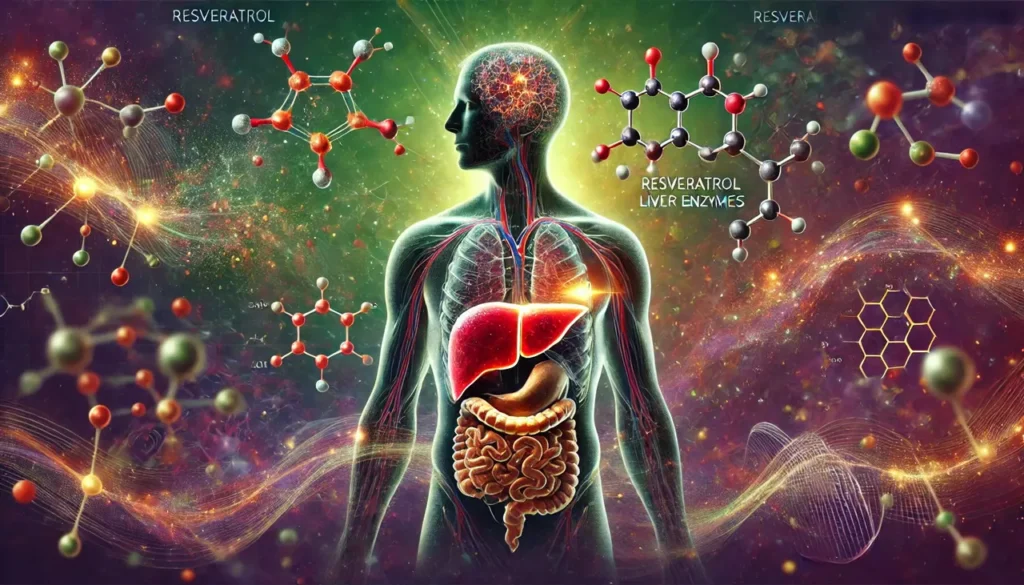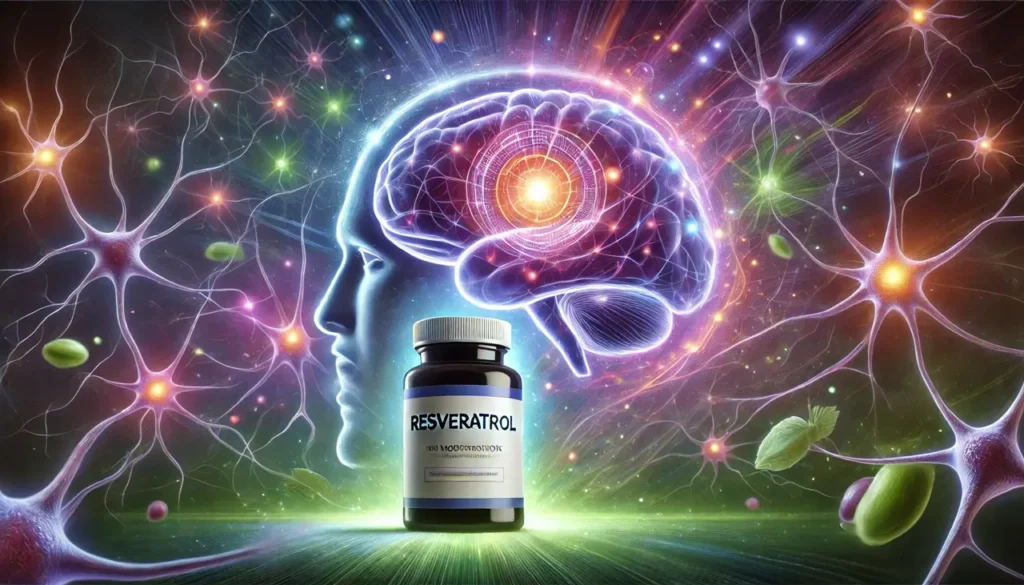Resveratrol, a naturally occurring polyphenol, has gained increasing attention due to its potential role as a nootropic—a substance that may enhance cognitive function. This compound is found primarily in grapes, red wine, and certain berries and is renowned for its antioxidant properties. However, recent research suggests that its benefits extend beyond cardiovascular health and may impact brain function, making it a promising candidate in the realm of nootropics. This article will explore the potential nootropic benefits of resveratrol, discuss its chemistry and physiological mechanisms, and provide critical information regarding dosage, side effects, interactions, and risks. Furthermore, we will touch on its interactions with other supplements, including the popular Reishi mushroom, a keyword optimized for this scholarly exploration.
You May Also Like:
Comfrey: Benefits, Dosage, Side Effects, Drug Interactions, and Other Important Information
Bayberry: Benefits, Dosage, Side Effects, Drug Interactions, and Other Important Information
Sources of Resveratrol
Resveratrol is primarily derived from the skin of red grapes, where it serves as a natural defense against fungal infections and UV radiation. It is also found in other sources, including blueberries, peanuts, and the traditional medicinal plant Japanese knotweed (Polygonum cuspidatum), which is particularly rich in resveratrol. These diverse sources have led to increasing interest in resveratrol as a dietary supplement, prompting research into its potential health benefits, including cardiovascular and cognitive health. As a result, many people seek to incorporate resveratrol-rich foods or supplements into their diets to leverage their bioactive properties.
Chemistry of Resveratrol
Resveratrol is a polyphenolic compound belonging to a class of molecules known as stilbenes, characterized by a 1,2-diphenylethylene backbone. Its chemical formula is C₁₄H₁₂O₃, and it exists in two isomeric forms: cis and trans, with the trans form being more stable and biologically active. The structure features two hydroxyl groups (-OH) that contribute to its antioxidant properties.
Resveratrol exerts its effects primarily through its action as an antioxidant. It neutralizes free radicals and reduces oxidative stress, which is a key factor in the aging process and the development of neurodegenerative diseases. Additionally, resveratrol modulates several cellular signaling pathways, particularly the activation of sirtuins, notably SIRT1. This enzyme plays a crucial role in regulating cellular longevity, mitochondrial function, and metabolic processes, further underscoring the significance of resveratrol in health and disease management.

Physiological Mechanism: Resveratrol and Brain Health
Resveratrol’s potential as a nootropic lies in its ability to interact with various brain pathways, offering both neuroprotective and cognitive-enhancing effects. One of the key mechanisms is its ability to cross the blood-brain barrier, allowing it to influence brain tissue directly. Several pathways through which resveratrol influences brain function include:
- Sirtuin Activation (SIRT1 Pathway): Resveratrol activates SIRT1, a protein that regulates mitochondrial biogenesis and enhances cellular longevity. This is particularly important for neurons, as it helps maintain mitochondrial function and protect against oxidative stress. Impaired mitochondrial function is a hallmark of neurodegenerative diseases like Alzheimer’s and Parkinson’s, making resveratrol an attractive candidate for cognitive protection.
- Reduction of Neuroinflammation: Chronic inflammation in the brain is associated with cognitive decline and various neurodegenerative diseases. Resveratrol has been shown to reduce pro-inflammatory cytokines, thereby minimizing neuroinflammation and preserving cognitive function. In animal models, resveratrol supplementation has reduced amyloid-beta plaques, a characteristic feature of Alzheimer’s disease, and has improved cognitive function.
- Improvement of Cerebral Blood Flow: Resveratrol has been demonstrated to improve endothelial function, leading to enhanced cerebral blood flow. Improved blood flow to the brain means better oxygen and nutrient delivery, which may enhance cognitive function. Studies in humans have shown that even moderate doses of resveratrol can improve cerebral blood flow and potentially augment cognitive performance, particularly in memory and executive function.
- Modulation of Neurotransmitters: Preliminary research suggests that resveratrol may affect the levels of neurotransmitters such as dopamine and serotonin. These chemicals play a crucial role in mood regulation, memory, and cognition, suggesting that resveratrol could potentially act as a mood stabilizer in addition to its cognitive benefits.
Nootropic Benefits of Resveratrol
While resveratrol is primarily known for its antioxidant and anti-inflammatory properties, its potential cognitive benefits are becoming increasingly recognized. Below are some of the key ways resveratrol may serve as a nootropic supplement:
- Memory Enhancement: Studies in both animal models and humans have shown that resveratrol may enhance memory. In one human study, older adults taking resveratrol supplements showed improvements in short-term memory and increased functional connectivity between the hippocampus and other brain regions involved in memory processing. The hippocampus is vital for the formation and retrieval of memories, and resveratrol’s ability to improve blood flow to this region may explain its memory-enhancing effects.
- Neuroprotection: Resveratrol may protect against age-related cognitive decline and neurodegenerative diseases by combating oxidative stress and reducing neuroinflammation. Research has suggested that resveratrol can delay the onset of Alzheimer’s and Parkinson’s disease by protecting neurons from oxidative damage and plaque formation.
- Mood and Cognitive Flexibility: Resveratrol’s interaction with dopamine and serotonin may also enhance mood and cognitive flexibility. While more research is needed, early studies suggest that resveratrol may reduce symptoms of anxiety and depression, further enhancing its value as a nootropic.
- Increased Longevity and Brain Health: Resveratrol may activate SIRT1 to promote cellular longevity, protecting against cognitive decline and potentially increasing lifespan. The role of SIRT1 in promoting mitochondrial health and reducing inflammation suggests that resveratrol may be especially beneficial in maintaining brain health during aging.

Dosage Recommendations
There is no universally accepted standard dosage for resveratrol, as studies have used a wide range of doses depending on the health outcome being investigated. However, most nootropic and cognitive studies use doses ranging from 150 mg to 500 mg per day. Some studies involving cardiovascular health have used doses as high as 2,000 mg daily, but these high doses may carry increased risks of side effects.
For nootropic purposes, a dose of 200 mg to 400 mg per day is considered safe and potentially effective. However, resveratrol is poorly absorbed in the human body, and its bioavailability is relatively low. Thus, taking it with fats or in combination with other supplements that enhance bioavailability, such as piperine (an active compound in black pepper), may increase its effectiveness.
Side Effects of Resveratrol
Resveratrol is generally considered safe when taken at moderate doses. However, as with any supplement, side effects can occur, especially at higher doses. The most commonly reported side effects of resveratrol include:
- Gastrointestinal Distress: Higher doses of resveratrol may cause nausea, diarrhea, and abdominal discomfort. These effects are typically dose-dependent and more likely to occur at doses above 1,000 mg daily.
- Blood Thinning: Resveratrol has been shown to have anticoagulant properties, which may increase the risk of bleeding, particularly in individuals taking blood-thinning medications like warfarin, aspirin, or clopidogrel. Anyone taking anticoagulants should consult with a healthcare provider before using resveratrol.
- Interaction with Hormonal Medications: Due to its potential phytoestrogenic properties, resveratrol may interact with hormonal medications, such as those used in hormone replacement therapy or oral contraceptives. While this interaction is not fully understood, individuals using such medications should exercise caution.
- Liver Enzyme Interaction: Some studies suggest that resveratrol may interfere with liver enzymes responsible for metabolizing certain drugs, potentially leading to altered drug levels in the body. This could be particularly concerning for individuals taking medications that are metabolized by the cytochrome P450 family of enzymes.

Interactions with Other Supplements and Drugs
Resveratrol may interact with a variety of supplements and medications, both over-the-counter and prescription. These interactions can alter the effectiveness of medications or increase the risk of side effects. Some notable interactions include:
- Anticoagulants: As mentioned earlier, resveratrol’s blood-thinning properties can increase the risk of bleeding, especially when combined with other blood thinners such as aspirin, warfarin, or non-steroidal anti-inflammatory drugs (NSAIDs) like ibuprofen.
- Anti-diabetic Medications: Resveratrol has been shown to lower blood sugar levels, which could enhance the effects of anti-diabetic drugs like metformin or insulin. This could increase the risk of hypoglycemia (low blood sugar), making it essential for individuals on these medications to monitor their blood sugar closely if taking resveratrol.
- Reishi Mushroom: Reishi mushroom, a popular supplement in traditional Chinese medicine, also has potential interactions with resveratrol. Both substances have immune-modulating and anti-inflammatory effects, which could theoretically lead to an overstimulation of the immune system when taken together. Additionally, both resveratrol and Reishi are known to have anticoagulant properties, so combining them may increase the risk of bleeding.
- CYP450 Enzyme Substrates: Resveratrol may inhibit certain liver enzymes (CYP3A4 and CYP2D6) involved in drug metabolism, leading to higher concentrations of medications that are substrates of these enzymes. This interaction is particularly relevant for medications with narrow therapeutic windows, such as certain antidepressants, antiarrhythmics, and statins.
Potential Dangers for Individuals with Certain Health Conditions
While resveratrol offers several health benefits, it may not suit everyone, particularly individuals with certain health conditions. People with the following conditions should exercise caution or consult with a healthcare professional before using resveratrol:
- Bleeding Disorders: Due to its blood-thinning properties, individuals with bleeding disorders such as hemophilia should avoid resveratrol or use it only under medical supervision.
- Estrogen-Sensitive Conditions: Resveratrol has mild estrogenic effects, which could potentially exacerbate conditions like breast cancer, ovarian cancer, or endometriosis. Individuals with these conditions should consult a healthcare provider before using resveratrol.
- Liver Conditions: Since resveratrol may affect liver enzymes involved in drug metabolism, individuals with liver disease or impaired liver function should be cautious, particularly if taking medications that are processed through the liver.
- Low Blood Pressure: Resveratrol has been shown to lower blood pressure, which could be problematic for individuals with hypotension (low blood pressure) or those taking medications to control hypertension. This interaction could lead to dangerously low blood pressure levels.
Conclusion
Resveratrol is a promising compound with potential nootropic benefits, including memory enhancement, neuroprotection, and mood stabilization. Its antioxidant properties and ability to modulate critical brain pathways make it an exciting candidate for further research in cognitive health and longevity. However, it is essential to use resveratrol responsibly, considering its potential interactions with medications and supplements such as Reishi mushroom, as well as its side effects and risks for individuals with specific health conditions. For those seeking to incorporate resveratrol as a nootropic supplement, starting with a moderate dose and consulting with a healthcare provider can help mitigate risks while maximizing the cognitive and health benefits of this powerful polyphenol.

References:
- 7 Health Benefits of Resveratrol Supplements. Retrieved from: https://www.healthline.com/nutrition/resveratrol
- Health Benefits and Molecular Mechanisms of Resveratrol. Retrieved from: https://www.ncbi.nlm.nih.gov/pmc/articles/PMC7143620/
- Resveratrol Supplements: Side Effects and Benefits. Retrieved from: https://www.webmd.com/heart-disease/resveratrol-supplements
- What to know about resveratrol. Retrieved from: https://www.medicalnewstoday.com/articles/resveratrol-benefits
Important Note: The information contained in this article is for general informational purposes only, and should not be construed as health or medical advice, nor is it intended to diagnose, prevent, treat, or cure any disease or health condition. Before embarking on any diet, fitness regimen, or program of nutritional supplementation, it is advisable to consult your healthcare professional in order to determine its safety and probable efficacy in terms of your individual state of health.
Regarding Nutritional Supplements Or Other Non-Prescription Health Products: If any nutritional supplements or other non-prescription health products are mentioned in the foregoing article, any claims or statements made about them have not been evaluated by the U.S. Food and Drug Administration, and such nutritional supplements or other health products are not intended to diagnose, treat, cure, or prevent any disease


